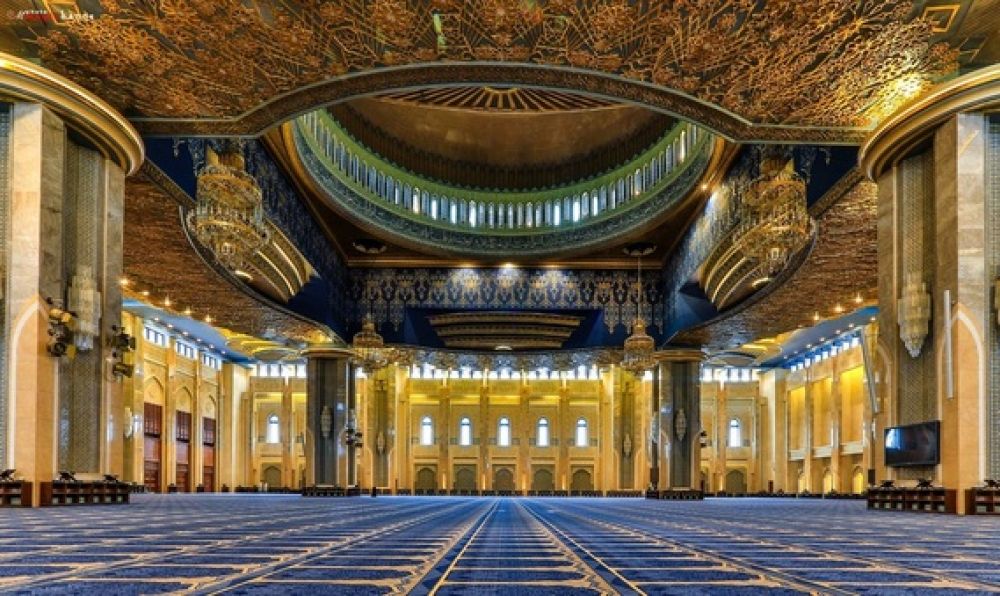

Nestled in the heart of Kuwait City, the Grand Mosque, also known as Al-Masjid Al-Kabir, stands as a pinnacle of Islamic architecture and Kuwait’s largest and official mosque. The history of the Grand Mosque is intertwined with Kuwait's dedication to Islamic art and culture, serving not only as a place of worship but also as a symbol of the country’s religious devotion.
The inception of the Grand Mosque dates back to 1979 when its foundation stone was laid. It took approximately seven years to complete this architectural marvel, with its doors opening to the public in 1986. The mosque has since played a pivotal role in the religious and cultural landscape of Kuwait. The mosque's design, which incorporates traditional Islamic themes alongside modern architectural techniques, has made it a must-visit destination for tourists and worshipers alike.
Spanning a vast area of 45,000 square meters and boasting a capacity to accommodate more than 10,000 worshipers, the Grand Mosque’s architecture is a blend of classical and modern Islamic styles, with intricate calligraphy and beautiful ornamentation. Its grandeur is visible from its large central dome, minarets, and the impressive prayer hall.
The Grand Mosque is a popular destination for tourists who wish to experience the serenity and splendor of Islamic worship spaces. The mosque offers guided tours for visitors to learn about its history, architecture, and the Islamic faith. These tours are an excellent opportunity for cultural exchange and understanding.
In recent years, sustainable tourism and cultural tourism have been at the forefront of the industry's growth, with an increased emphasis on authentic experiences. Many visitors are looking to engage with the local community and learn about their traditions and customs. The Grand Mosque serves as an exemplary site for this kind of immersive experience.
In the present day, the Grand Mosque continues to play an essential role in the cultural and religious itinerary of visitors to Kuwait. Its beauty and tranquility offer an oasis of calm in the bustling city. The mosque also hosts special events during Ramadan and other Islamic holidays, providing insights into the spiritual practices of the local population.
As a reflection of Kuwait’s commitment to its religious roots and architectural heritage, the Grand Mosque is more than a mere tourist attraction; it is a living institution that offers a deep dive into Islamic culture and an ongoing invitation to visitors from around the globe to come and engage with Kuwait's history and spirituality.